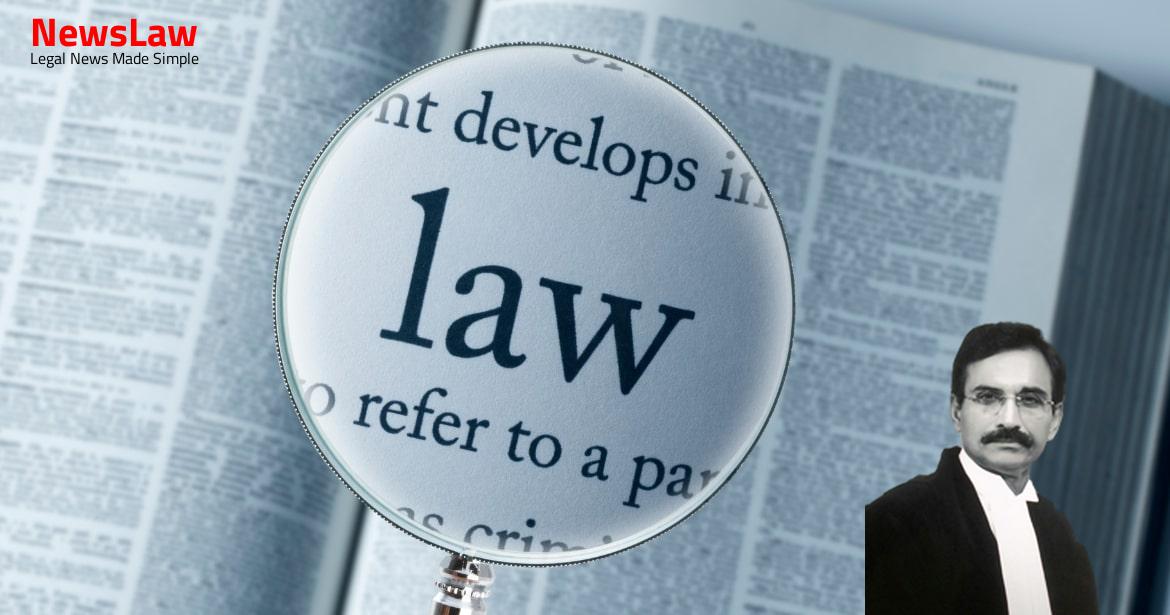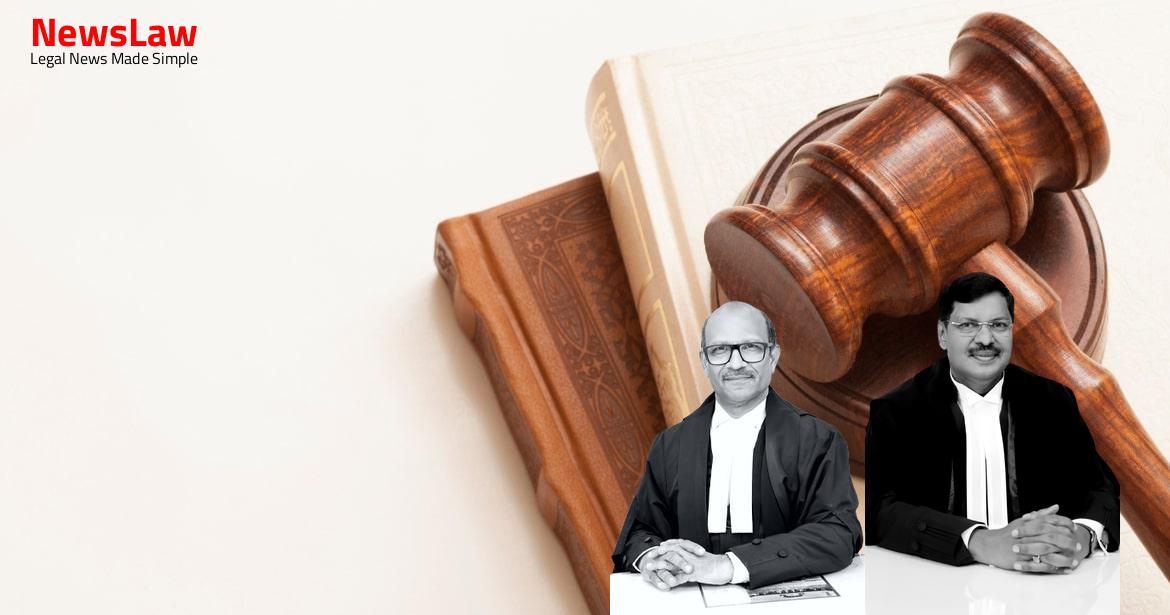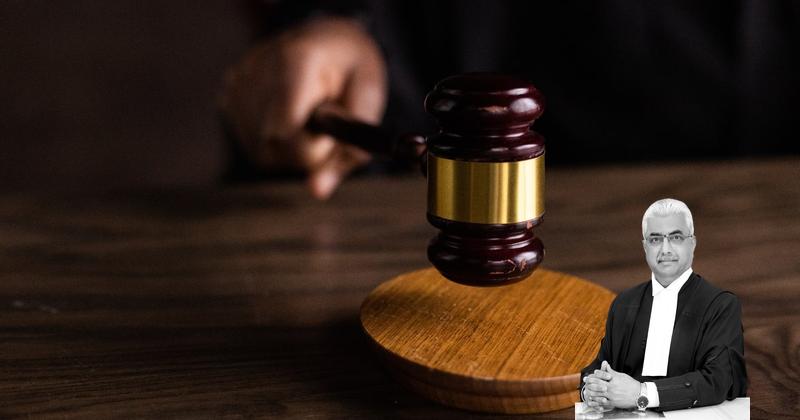Delve into the recent legal analysis by the court in an insolvency case, examining the boundaries of judicial review when it comes to commercial decisions made by the Committee of Creditors. The case highlights key principles of the insolvency law framework and the court’s approach to addressing material irregularities in the decision-making process. Stay tuned to learn more about the court’s detailed analysis and its implications in the legal landscape.
Facts
- Shri Mukul Rohatgi, Senior Counsel for the appellant, argued that the approach of the NCLAT in the impugned order was erroneous.
- The RP invited expressions of interest (EOI) from prospective Resolution Applicants.
- On 14 February 2020, respondent No.1-PPIPL revised its offer to Rs.65.65 crore from an initial offer of Rs.24 crore.
- Shri Rohatgi argued that the revision was with mala fide intent to delay proceedings.
- He contended that the NCLAT should not have interfered with the CoC’s commercial wisdom.
- The Resolution Plan of Ngaitlang Dhar has been implemented, with dues repaid to the banks and the Corporate Debtor now operational.
- Shri Abhijeet Sinha, counsel for respondent No.1-PPIPL, argued that irregularities in the RP’s procedure could warrant an appeal.
- He claimed undue haste by the RP in the matter.
- The CoC evaluated Resolution Plans of all prospective Applicants, with Ngaitlang Dhar emerging as the highest bidder.
- The NCLAT set aside previous orders and directed to resume the CIRP from the Resolution Plan consideration stage.
Also Read: Presumption of Genuine Endorsements in Cheque Case
Arguments
- Revised offer submitted within two days
- RP’s duty to present revised offer before CoC
- NCLAT rightly interfered with CoC decision
- Reliance on Pratap Technocrats (P) Ltd. case judgment
- NCLT extended CIRP period by 90 days
- No reason for RP to hastily accept Ngaitlang Dhar’s bid
- Both Banks refused to consider the offer as it was not valid in law
- Learned counsel for the Banks support Ngaitlang Dhar’s arguments
- The Banks have received full payment owed to them
- Decision of the CoC will not be challenged based on ‘commercial wisdom’
- Process of decision making can be challenged for any material irregularity
- Facts are undisputed in the present case
- Email from PPIPL on February 14, 2020, was also sent to Allahabad Bank and Corporation Bank
Also Read: Medical Negligence and Compensation: A Landmark Decision
Analysis
- The procedure adopted by the RP and CoC was fair, transparent, and equitable.
- The decision of the CoC to not grant further time for submission of revised bids and to finalize the Resolution Plan on 12 February 2020 was not a material irregularity.
- The appeal by the RP for a further extension of the CIRP period was deemed without substance as there were no material irregularities in the process.
- Commercial wisdom of the CoC was upheld, and errors contemplated were related to defects in procedure, not to errors in law or fact after compliance with legal formalities.
- There was no irregularity in the process followed by the RP and CoC, and allowing PPIPL to participate despite earlier assurances to exclude them would have been irregular.
- The CoC’s collective business decision and commercial wisdom are not justiciable, except on limited grounds specified under the IBC.
- The CoC evaluated all proposed Resolution Plans, gave opportunities to all prospective Resolution Applicants, and declared Ngaitlang Dhar as the highest bidder on 12 February 2020, authorizing the RP to seek an extension of the CIRP period before the NCLT.
- The NCLT’s previous extension of the CIRP period by 90 days did not negate the necessity to approve Ngaitlang Dhar’s Resolution Plan on 12 February 2020, as the 180-day period was due to expire on 24 February 2020.
- In the case of Keshardeo Chamria v. Radha Kissen Chamria, the scope of the words ‘material irregularity’ in Section 115 of the Code of Civil Procedure, 1908 was examined.
- The words ‘illegally’ and ‘material irregularity’ in Section 115 do not extend to cover errors of fact or law, as per the observations of Bose, J. in Narayan Sonaji v. Sheshrao Vithoba.
- This legal standpoint has been consistently upheld in various judgments of the Court, including K. Sashidhar v. Indian Overseas Bank, Committee of Creditors of Essar Steel India Limited v. Satish Kumar Gupta, Maharashtra Seamless Limited v. Padmanabhan Venkatesh, Kalpraj Dharamshi v. Kotak Investment Advisors Limited, and Ghanashyam Mishra and Sons Private Limited v. Edelweiss Asset Reconstruction Company Limited.
- The purpose of the IBC is the revival of the Corporate Debtor and making it an ongoing concern.
- All dues of the financial creditors have been paid in the present case, and the Corporate Debtor is now an ongoing concern.
- The NCLAT erred in interfering with the decision of the CoC which was approved by the NCLT.
Also Read: Remand of Writ Petition for Restoration and Decision on Merits
Decision
- No order as to costs.
- The appeals are allowed.
- The impugned judgment and order passed by the NCLAT on October 19, 2020, is quashed and set aside.
Case Title: NGAITLANG DHAR Vs. PANNA PRAGATI INFRASTUCTURE PRIVATE LIMITED (2021 INSC 923)
Case Number: C.A. No.-003665-003666 / 2020



